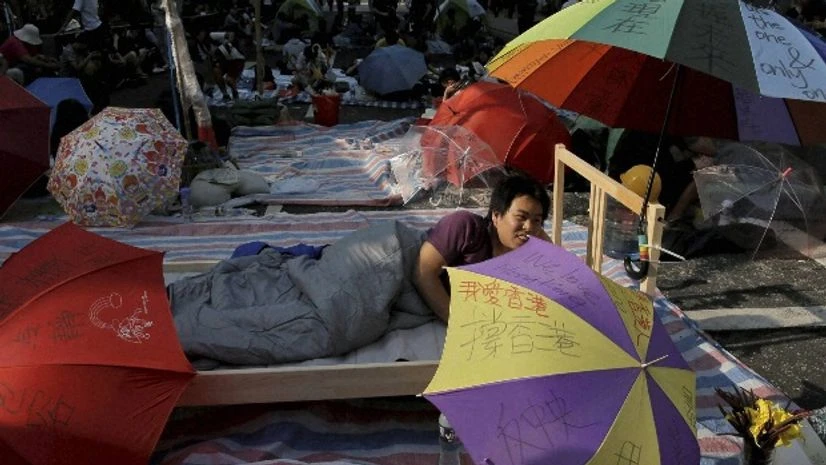Pro-democracy demonstrators in Hong Kong defied police warnings to get off the street and scrambled to re-erect barricades torn down by opponents of the student-led movement as they scuffled for control of the city's streets.
Clashes were reported Monday from the Admiralty area, the city's financial heart, involving around 500 people who favour Beijing's policies in the former British colony, while flatbed trucks carted away the remains of makeshift barricades.
"The police did nothing to protect our tents -- they were just destroyed," one of the protesters told EFE news agency.
Rumours swirled through the city claiming that the pro-Beijing gangs were really members of the Chinese mafia, after police mentioned the possibility that 200 members of these gangs took part in the October 3 clashes in the Mong Kok district.
Monday's confrontations went on for some 40 minutes and resulted in the detention of three people for possession of weapons. The police separated both sides and stayed several metres away from the protesters.
In Causeway Bay area, activists reinforced makeshift barricades with cement after the police announced the area would be cleared. Earlier, police said they planned to evacuate the Causeway Bay and Queensway Street shopping districts very soon.
More From This Section
Protesters' demands include a call for the resignation or removal of the chief executive of the Special Administrative Region of Hong Kong, C Y Leung, widely seen as Beijing's puppet.
They also are seeking guarantees that Hong Kong citizens can freely vote in 2017 from an unrestricted list of candidates, as Beijing promised when Britain handed over control of the territory in 1997.
The protests were sparked by Beijing's decision to allow Hong Kong a type of 'universal suffrage' in selecting the next head of the government that limits the number of candidates to two or three, subject to the prior approval of an advisory committee.
Those restrictions led students to begin a strike calling for democracy to be established in Hong Kong and thousands of people joined in when police used tear gas to disperse sit-ins September 29.

)
